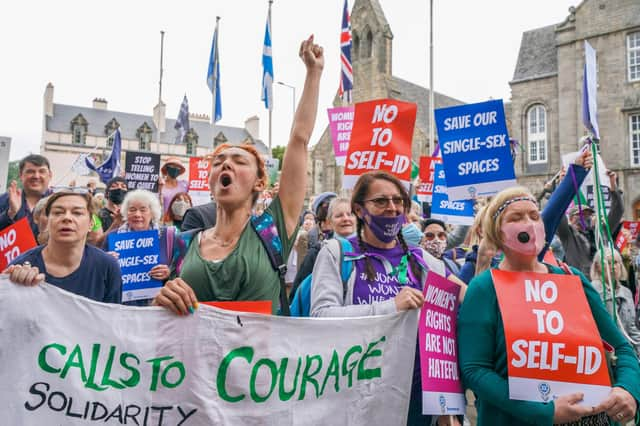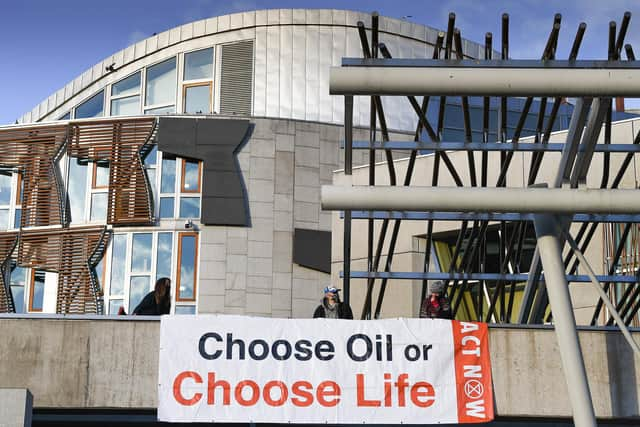Holyrood protesters set to face criminal prosecution under new law


Under the new legislation, anyone remaining on the parliamentary estate “without lawful authority” will be punishable by a £5,000 fine or a year in jail if they are convicted.
Many protests take place outside the Scottish Parliament every year, including one last week in support of women's rights and against vaccine passports.
Advertisement
Hide AdAdvertisement
Hide AdUnder current rules, only those found to be causing a disturbance, such as excessive noise, could be removed by police. The law, which will include all grounds and ponds where most protests take place, will mean Holyrood will have the same power to remove protesters as Westminster and the Welsh assembly.


It is believed the Scottish Government will only be likely to use the power infrequently.
In a letter to MSPs, presiding officer Alison Johnstone said: “We recognise that such protests are an essential part of the expression of democracy in Scotland.
“At present, the police have limited ability to intervene if there is no substantive criminal offence taking place, and disruptive protests can become especially prolonged. Civil legal remedies can be lengthy, expensive and an additional burden on civil justice resources.
Advertisement
Hide AdAdvertisement
Hide Ad"The SPCB therefore recognised that we need a proportionate means of maintaining parliamentary business whilst protecting the rights and freedoms of people."
She added: “As we have seen many times recently, maintaining a functioning Parliament to deliver and oversee the response to the current pandemic has clearly been in the national interest.
“We are also operating in the context of an increasing level of disruptive activity, including protests on our roof requiring specialist policing and emergency services response, and unauthorised occupation of the Debating Chamber. Actions such as these have the potential to disrupt the Parliament’s ability to meet.”
Legislation has now been laid in Westminster under the Serious Organised Crime and Police Act 2005 and is due to come into force on October 1.
Advertisement
Hide AdAdvertisement
Hide AdMs Johnstone said: “Both the UK Parliament and Welsh Senedd are already designated as protected sites. We were reassured to learn from their experience that having the designation as a protected site has not limited protest – far from – but has encouraged those engaging with the institutions to keep activities in line with their policies.
“SOCPA was enacted specifically to provide a solution to these competing tensions, to the extent that the right to protest and right to assemble at protected sites have already been balanced in law against the public interest in such sites being able to function safely and securely.”
“The Act therefore provides an appropriate legal mechanism, providing the SPCB and Police Scotland with the required powers to effectively and safely manage access and security at the Parliament. Being a protected site maintains the right to protest in a manner which does not impede parliamentary operations whilst also giving police the power they need to support us.
“These powers must, of course, be exercised in a proportionate manner. The SPCB has asked officials to work up a protocol between us and Police Scotland which will set out how and when powers to arrest or remove persons from the site will be invoked and the essential role that the SPCB will play in such decisions.”
A message from the Editor:
Thank you for reading this article. We're more reliant on your support than ever as the shift in consumer habits brought about by Coronavirus impacts our advertisers.
If you haven't already, please consider supporting our trusted, fact-checked journalism by taking out a digital subscription.
Comment Guidelines
National World encourages reader discussion on our stories. User feedback, insights and back-and-forth exchanges add a rich layer of context to reporting. Please review our Community Guidelines before commenting.